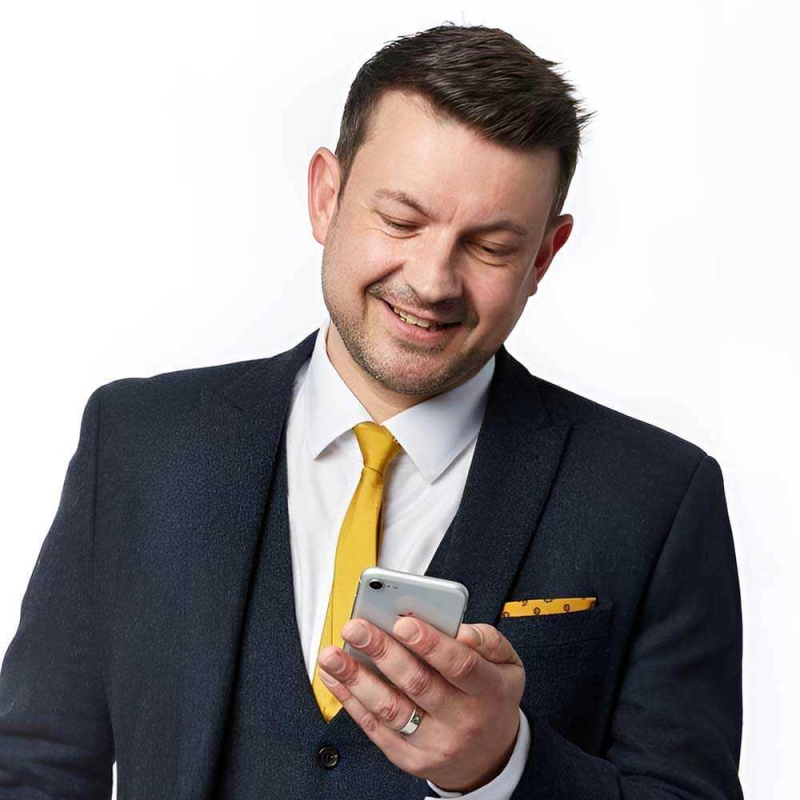One of the many great things about the public relations industry is that it will take on employees from all walks of life.
A degree in PR is not an absolute requirement to be successful in PR, indeed, having a degree seemingly puts you in the minority.
In 2023, a blog on published on Social Media Training (SMT), suggested that PR degrees have been in decline since university tuition fees were raised in 2010, and that the drop “raises questions” around the future of the profession.
However, according to Whatuni there are 46 undergraduate courses currently available in the UK related to PR, and if you count in postgraduate degrees this goes up to approximately 60.
As graduates begin pouring out of their summer gap years and into the world of work, and students begin looking for internships, PRmoment wanted to ask whether PR university courses are changing — and how.
Embracing digital developments
Amy Lund, PR lecturer at Sheffield Hallam University: “PR courses at Sheffield Hallam University are changing, particularly in terms of our digital approach. While small group, in-person seminars, are still a crucial part of learning PR skills, we’re making more of our teaching available digitally.
“This allows students better access to resources, as well as allowing us to expand the scope of what we can offer. We have secured an impressive range of PR experts from a variety of specialisms, who work all over the UK, to talk to our students online. Many would not be able to travel, mid-week, for an in-person guest talk.
“Also, instead of vilifying AI, the university is working with industry and its academics to determine how professionals use AI for research and then create guidelines so students can embrace AI tools, without, of course, using them to write their essays or complete their assignments for them.
“These digital developments mean that the PR students’ learning is keeping abreast of industry trends and preparing them for work with applied learning at Sheffield Hallam University.”
PR degrees aren’t disappearing, they are evolving
Neil Kelley, course director and senior lecturer, marketing at Leeds Beckett University: “Public Relations education at universities is changing. It may feel like it’s disappearing, but in reality, it’s evolving and becoming more integrated. At Leeds Beckett, we no longer offer PR as a standalone course.
“Instead, it’s embedded across our marketing, advertising, journalism and digital communications degrees. Many applicants aren’t aware of PR as a career, let alone a subject to study, so it now sits within a broader, applied skillset that reflects how campaigns are actually delivered.
“There’s also been a shift in what’s expected. It’s no longer just about writing press releases or managing crises; PR now includes digital storytelling, influencer engagement, trust, purpose and stakeholder relationships. Ethical practice, sustainability and social impact are core themes, and the influence of generative AI is shaping how we teach these from day one.
“Live briefs, placements, workshops and CIPR-linked projects are central to delivery. Our Global Communications module, developed in partnership with universities from 14 countries, gives students experience of communicating across cultures and borders.
“The industry is fast-moving, multi-platform and under constant scrutiny. The way we teach PR has had to evolve to meet that, so students graduate not just with knowledge, but with the confidence and readiness to apply it.”
AI drives degree of change
Dr Martina Topić-Rutherford, associate professor in PR leadership at The University of Alabama: “PR degrees are changing, particularly in relation to the rise of AI. AI is changing ethics, as we need to be mindful of academic integrity in assignments and adapt to technological changes. I do not ban AI use outright because I do not think that is productive or helpful for students’ future careers.
“I have changed my assessment strategies. For e.g., in the advertising and PR management class, which is a behavioural approach to studying management in the APR industries, students send me responses to readings every week.
“These readings are a mix of industry articles, professional articles such as Harvard Business Review, and academic papers. Students write leadership log assignments, which are their personal reflection on what they have learnt from class discussions, and they also respond to workplace-related behavioural memos linked to class discussions.
“They are allowed to use tools such as Notebook LM to digest readings (this is relevant for academic papers, which can sometimes be hard to read), which supports developing AI skills, but assignments are reflective and based on personal reflection on leadership and management in the APR industries. This approach works better, and I think that reflective learning is the future of assessment in HE.
“For the record, this reflective learning and a focus on learning from personal experiences and industry practice is a British approach to higher education, which may have looked peculiar to some in the past, but I think that British academia got things right because the reflective approach is, in my view, saving academic integrity and protecting student learning.
“It is very easy to fall into a trap of getting AI to do things for you, but this approach prevents that while also not taking away anything from developing AI skills.”
We don’t teach GEO... but we might
Aideen McLaughlin, lecturer of communications, advertising and PR at Edinburgh Napier University: “Have we changed? Yes and no. Edinburgh Napier University (ENU) has always prided itself on its strong industry links and focus on employability, this is unflinching. However, with fewer PR jobs in higher demand and a number of entry level tasks gone to AI automation, the need to get this right for our students has never been more critical.
“We recently consulted with around 12 industry leaders on what they wanted from future PR and communications practitioners. Creative, strategic and hybrid written/visual content creators who embrace and question AI and new technologies with a critical and ethical eye was their key message.
“So what did we do? Nothing seismic, but crucial, nuanced shifts. We pivoted a class on digital futures, embedding GenAI more holistically across all our teaching from a practical, critical and ethical POV.
“Our learning has always been hands-on, applied and active, but we’ve definitely upped our game on cross-platform multimedia production skills and increased our collaborations with industry on meaningful live briefs in response to real-world challenges. We’ve intensified our focus on soft, transferable skills and lifelong learning, producing PR students who are curious, creative and critical thinkers, storytellers and problem-solvers with resilience and adaptability to thrive in multiple aspects of our fast-changing social, cultural and media environments.
“Do we teach Generative Engine Optimisation (GEO)? No, but we might. But in many ways, GEO brings PR full circle. As LLMs rely on reputable, authoritative and trustworthy sources for their information, earned media through media relations, thought leadership and other third-party endorsements have never been more important in building reputation, connection and community. And that’s what PR has always been about – isn’t it?”
PR Masterclass: The Intersection of PR and GEO
Wednesday 25th February, both virtual and in person tickets are available.
PR MasterclassIf you enjoyed this article, sign up for free to our twice weekly editorial alert.
We have six email alerts in total - covering ESG, internal comms, PR jobs and events. Enter your email address below to find out more:










